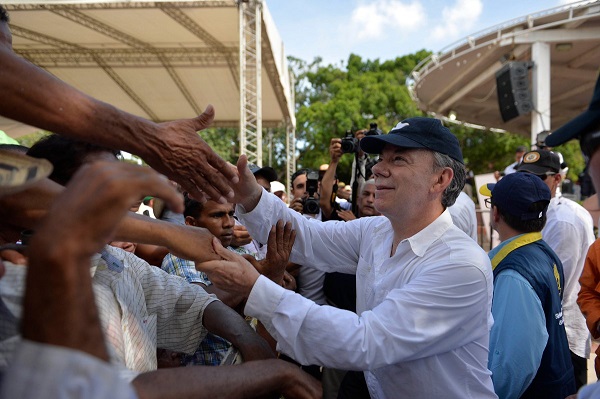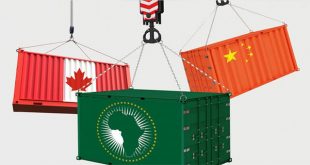
Bogota, Colombia | AFP |
In a Colombia left deeply divided by a contested peace deal with the FARC rebels, not everyone was happy about President Juan Manuel Santos winning the Nobel Peace Prize Friday.
“Santos doesn’t deserve it,” said Rodolfo Oviedo, one of the opponents of a peace deal that aimed to end half a century of conflict with the Revolutionary Armed Forces of Colombia (FARC).
Oviedo, a 40-year-old farmworker, was forced from his land by the FARC in 2004, in the central department of Tolima, a rebel stronghold.
Like many critics of the peace deal signed on September 26 and narrowly voted down in a referendum Sunday, he accuses Santos of being too soft on the Marxist guerrillas.
Instead of holding high-level talks with rebel leaders in faraway Cuba, the president should have listened to the rebels’ victims on the ground, he said.
“He went about this all wrong. He started by making peace from the top down. He didn’t start from the ground up. Peace has to be made from the countryside, with the displaced,” he told AFP.
Oviedo was speaking on Bolivar Square in central Bogota, where he has been camped outside the presidential palace for more than a month.
It is his way of protesting what he says is the government’s neglect of the nearly seven million people forced to flee their homes by the conflict, which has also killed more than 260,000 people and left 45,000 missing.
‘They kill families’
Jose Alberto Soriano, an 18-year-old whose grandfather was killed by the FARC in 1991 for refusing to leave his land in the central department of Meta, said he too disagreed with the Nobel committee’s decision.
Like many opponents of the peace deal, he accused Santos of offering impunity for massacres, kidnappings and other rebel crimes.
“They kill families, and we’re supposed to get down on our knees for them,” he said.
Opposition to the deal has been led by former president Alvaro Uribe, Santos’s predecessor and one-time boss.
The right-wing hardliner condemned the rejected agreement for letting rebels, even those guilty of gross human rights violations, escape jail time and run for elected office.
Santos has now opened talks with Uribe’s camp in a bid to salvage the deal. His negotiators are simultaneously pushing the FARC to accept revisions.
The Nobel appeared to encourage the peacemakers, with the government and rebels pledging Friday to continue their ceasefire and discuss changes to the agreement “to give guarantees to all”.
‘Colombia not alone’
Other Colombians welcomed the award — laying bare the polarization of a country where the referendum on the peace deal was decided by a razor-thin margin of 50.21 percent against to 49.78 percent for.
“President Santos deserves the Nobel, and also all Colombians for the struggle we’ve made to achieve peace. This prize is the best thing that could have happened to us,” said Alvaro Castaneda, 62, a photographer who takes tourists’ pictures on Bolivar Square.
Nearby, Nicolas Giraldo, a 29-year-old business manager, said the Nobel sent Colombians a much-needed message: that the world supports its search for peace.
“A lot of people feel like this is a process that Colombians have to take on all by ourselves,” he said.
“But no. This international backing shows we’re not alone.”
 The Independent Uganda: You get the Truth we Pay the Price
The Independent Uganda: You get the Truth we Pay the Price



